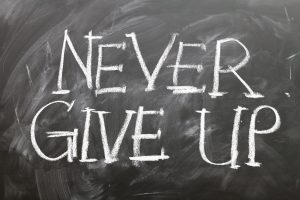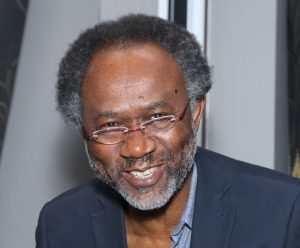
If those who have studied the art of writing are in accord on any one point, it is this: the surest way to arouse and hold the reader’s attention is by being specific, definite, and concrete.
– Strunk and White (The Elements of Style)
When writing an article or essay of a thousand words it suffices to say that the writing process can be emotional, lonely and apprehensive. At times when a writer is writing about something that is of significant personal interest the issue of detaching one’s self from the writing becomes more important because without doing that the writer’s sentiments can easily blur more important issues that the writing was intended to attend to in the first instance. This blurring of facts and fiction together can easily lead to facts becoming fiction.
No one can write decently who is distrustful of the reader’s intelligence, or whose attitude is patronising.
– E. B. White (Advice to Writers by John Winokur)
If it was to be a work of fiction then the reader comes into it with the mind-set of reading a made up story irrespective of how convincing the story-line is. But when a writer says a piece of writing is factual – non-fiction – then undue sentiments and emotional involvement in the writing might lead to unintended skewed presentation of facts. However, readers do not expect to read a writing piece that is dull, bland and deprived of any emotional feeling to it because that is what robots do and not humans. Readers invest their most precious assets in life – time and at times money into reading whenever they read a writing piece, and as such, they demand the utmost respect from the writer. Hence, a writer needs to respect that special honour by giving back to readers something that is what that privilege bestowed on the writer by the readers.
Despite the challenges that writing or the writing process can pose to writers including Nobel laureates (you can read about the 2017 Nobel prize in literature winner Kazuo Ishiguro’s experience with writer’s block here), the writing process is a very interesting, enjoyable and exciting experience. The process of seeing one’s thoughts, feelings, experience, discussions and perceptions manifest themselves on the pages of a book or better still on a blog site gives an immense sense of satisfaction to a writer. It is like having an empty piece of land and then designing, building and commissioning an architectural edifice on it. The satisfaction this process brings to the people involved in the construction process – the property owners to those whose expertise were sought in actualising the built up structure is invaluable – writing can feel like that.
There is that part of the writing process in which the reader becomes the defacto king, that period when the writing becomes a finished article and the reader’s reaction of acceptability, mutability or rejection becomes primordial in the mind of the writer. This period is the most apprehensive stage of the writing process to a writer because it is a period that could make or mar a writer’s will power to write more. While E.B. White in his book ‘Essays of E. B. White’ argued that the essayist is an egotist, Ernest Hemmingway talked about the dangers of ego in writing in his 1954 Nobel prize in literature acceptance speech.
Ultimately, however, good writing rests on craft and always will. I don’t know what still newer electronic marvels are waiting just around the corner to make writing twice as easy and twice as fast in the next 25 years. But I do know they won’t make writing twice as good. That will still require plain old hard work – clear thinking – and the plain old tool of the English language.
– William Zinsser (Introduction to ‘On Writing Well’)
For long I imagined that writers have special places where they write or special strategies or approaches they employ in their writing process, however, my interactions with writers through reading (most times) and one-to-one discussions occasionally have shown me that there is no one size fits all style to the writing process. From writers who were known to keep notepads or notebooks (this was and is still a common practice amongst writers in general) to more modern approaches that writers use, like using mobile phones’ audio recording, camera, sms and email features to document some of their spur of the moment ideas or thoughts. Personally, I make use of post-it notes and notebooks occasionally but I use MS Word and WhatsApp apps on my phone most times to document ideas or thoughts I have when I want to write or when I’m on the move.
Most times I use either the WhatsApp or MS Word app on my phone in writing my first drafts and afterwards send them to my inbox as attachments via WhatsApp or E-mail, and afterwards download on MS Word on a laptop or PC for better articulation of the ideas I was trying to put together. I then edit and edit until I think I’m alright with the writing piece. The editing process is one aspect that I’ve come to learn about in a very hard way. In the past I used to imagine that writers just write and put their work out there and everything was perfect ab initio. But there was a particular article in New York Times by Teju Cole that I once read in which he said he had to re-draft the particular article twelve times and that the final outcome was the product of the twelfth draft. I sat where I was reading the article thinking to myself – ‘how come I’ve never seen the writing process in this way for so long?’ you can read Teju Cole’s advice on writing here (PDF).
Avoid the passive voice whenever possible. University term papers bleed with the passive voice. It seems to be the accepted style of academia. Dump it.
– Rita Mae Brown (Advice to Writers by John Winokur)
Whenever I’m not sure of a choice of word, phrase, sentence or paragraph I just google for the meaning, source or relevance of the cog in the machine that could potentially invalidate other parts of the writing piece and if I’m still not sure I consult some people that are close to me, and if I still don’t feel convinced I discard the cog in the machine altogether. It’s better to put out something one is confident about than to make unnecessary blunders or mistakes. I try to avoid using big vocabulary words that serve no particular good apart from creating confusion or muddling up of facts, information, message or idea that I was writing about or trying to pass across to the reader.
I’ve always enjoyed reading books about reading and writing, and one habit that is consistent with most – if not all – writers is that they talk about the need to read and read a lot, and the more I try to engage myself in the habit of regular writing the more I realise the need to read more on a regular basis. Because we are all limited by what we personally experience in life; reading gives us an immediate opportunity to expand and widen our horizons and world views on different issues. But reading for the purpose of enhancing one’s writing demands a different approach from reading for a general purpose like leisure reading. For instance, I have a very nomadic reading habit – I read on various subjects of interest to me, however, since I started writing regularly on educationally issues that relate to Nigeria and I also work in the education sector, I try to focus my readings more on issues that relate to education in general and Nigeria in particular.
I try to read on various subjects for my leisure reading but I do this with the mind-set of someone who’s interested on the issue of discourse or at times the title of the writing piece. It could be a book or an essay, the title might be the source of attraction to me at the initial stage, however, I constantly try to be leisurely engaged with whatever I’m reading and in this mode my critical mind goes into hibernation while my passive mind comes into being but if a book starts exploring ideas or asserting certain facts that I’m interested in then my critical mind comes into being instantly and my passive mind goes into hibernation. And if I find what I’m reading not to be satisfying to either of my passive or critical mind, then, I take my liberty to leave the writing piece in peace without dishonouring the writer. I try as much as possible to avoid negative reviews of other people’s work in public domains.
Another important approach I use in my writing process is listening to podcasts; as a child I’ve always loved listening to radio than watching TV and when podcasts came on the scene and I became aware of them I became more of a podcast listener and less of a radio listener because of the nature of podcasts – I can download or live stream what is of interest to me at that particular moment in time. I also enjoy walking and walking through the local park down my street gives me the opportunity to unconsciously reflect on writing issues of interest to me. I’ve always enjoyed leisure walking since childhood but it became more pronounced to my conscious mind during my undergraduate years at Obafemi Awolowo University in Nigeria. I still remember the nostalgic feelings I used to have whenever I went back during the holidays to Lagos and I alight from a public transport at the motor park in Oshodi in Lagos. I remember how I used to miss the freedom and pleasure of walking on the university’s campus roads. For an interesting writer’s view on walking you can read Henry David Thoreau’s writing on ‘walking’.
You can write about anything, and if you write well enough, even the reader with no intrinsic interest in the subject will become involved.
– Tracy Kidder (Advice to Writers by John Winokur)
Most times I start my blog posts with a different idea of what I intend to write about or at times with no idea of what I was going to write on, and the blank page becomes like an artist’ blank canvass to me but usually I do have the overarching idea of the subject matter or issue that I intend to write about or on. From that basic position or situation I just type based on what I was thinking, giving little or no attention to spellings, grammar or fluidity of whatever I was writing about. I know I can always go back to edit the piece afterwards. The most important thing for me at the initial stage is to have some words on the blank page. And as I type on, the writing evolves itself and at times the writing would evolve into a different topic or issue and I would end up with a different end product from what I started with. I usually avoid having a title in mind at the beginning of my writings because most times titles can stifle the growth and fluidity of ideas that make the writing process enjoyable and less tedious.
I leave you with immense gratitude for reading this piece.




